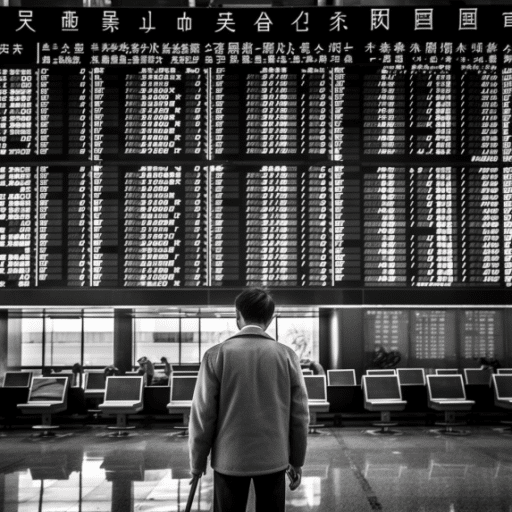I often write on Quora.com, where I am the most viewed writer on financial matters, with over 415.7 million views in recent years.
In the answers below I focused on the following topics and issues:
- Why are Chinese stock ETFs not outpacing American ones when China’s GDP has been growing faster than the US for years? When will China’s growth be reflected in its stock market?
- Do billionaires take loans?
If you want me to answer any questions on Quora or YouTube, or you are looking to invest, don’t hesitate to contact me, email (advice@adamfayed.com) or use the WhatsApp function below.
Some of the links and videos referred to might only be available on the original answers.
Source for all answers – Adam Fayed’s Quora page.
Why are Chinese stock ETFs not outpacing American ones when China’s GDP has been growing faster than the US for years? When will China’s growth be reflected in its stock market?
There are a few things to consider here. Firstly, here is a question for you.

When was the only calendar year when the S&P500 has been down since the Great Depression of 2008 – adjusted for reinvesting dividends?
The answer is 2018 when the market fell -6.24% for the year, meaning you would have been down about 4% or so if you had reinvested dividends.
What was the second-best year, in terms of US GDP growth, between 2008 and 2020?
You guessed it! 2018. The economy grew by 3%, whereas the S&P500 fell by -6%.
In 2013, the S&P500 rose by 29.60%, but GDP growth was 1.8%.
There has never been a clear correlation between stock market growth and the economy, and vice versa.
Even if there was a connection, in a global world, world GDP would matter more. Apple sells more stuff outside the US than inside, and some international Chinese firms also have a huge global presence.
Now coming to China, the connection between GDP growth and stocks is even less clear.
Indeed, the stock market in Shanghai did very well between 2000 and 2006, as shown by the graph below.
These were also six of the best growth years ever for the country.
Yet the stock market crashed in 2006, and the economy grew more in 2007 than at any time since the upcoming up in 1978.
The issue with the Chinese stock market is:
- It can always be controlled by the government, and this risk is bigger than for most other countries
- There are fewer institutional investors versus markets in the US and even Europe, which means that retail investors play a bigger role. Retail investors can be more emotional. This is why you see these huge swings in the market like in 2015 when the stock market rose and fell fast.
- There isn’t a big appetite from either Chinese retail investors, or most international investors, to own Chinese stocks, especially as many Chinese firms IPO internationally.
Every dog has its day in investing, and the Shanghai Composite will probably have its day again.
It will be ironic if that day comes once China’s growth lags behind the US and some other economies, which could even happen this year as per this analysis:
The cheapness in some of the valuations will be one of the drivers, rather than GDP numbers.
Do billionaires take loans?

Yes, billionaires take loans just as many other people do.
Elon Musk has just taken a loan to buy Twitter.
It is more likely to be called “leverage” by the media.
The only difference is that most billionaires earn more from asset appreciation, rather than salary.
This allows them to borrow against their stock, as Elon Musk and others have done, which has caused controversy.
It can reduce taxes, in the short term at least, and maximize gains.
This article explains it well.
Two investors both make $20m from selling their business.
They both get identical returns, but investor two borrows $5m, against their portfolio.
After ten years, the first investor has $34.8m and the second $37.3m.
It is for the same reason why buying property on leverage (mortgage) works for the average investor – IF the property market is doing well.
This leads me to another thing. Debt/leverage isn’t a free lunch. It increases risk. I have met several wealthy people who got over-leveraged.
During 2007-2008, many saw their net worth go to zero, as they borrowed too much for housing and businesses.
What is more, there is a big correlation between a lack of debt and emotional well-being. Debt can be stressful for people – wealthy and non-wealthy alike.
So, sometimes it makes sense to not only focus on what is best financially but also for your well-being.
Pained by financial indecision? Want to invest with Adam?

Adam is an internationally recognised author on financial matters, with over 760.2 million answer views on Quora.com, a widely sold book on Amazon, and a contributor on Forbes.



